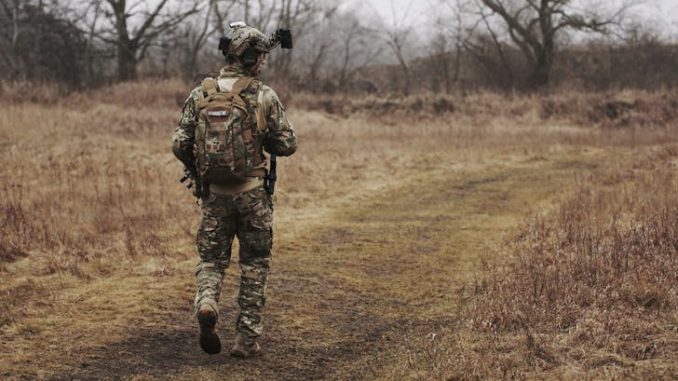
Rucking is quickly becoming one of the most talked-about workouts in fitness circles. If you are unfamiliar with the term, rucking refers to walking with a weighted backpack. While it sounds simple, rucking offers a unique combination of cardio and strength training, making it an incredibly efficient workout.
It is low-impact, meaning it is easy on the joints. However, the added weight challenges your muscles in ways regular walking doesn’t.
Where Does the Concept of ‘Rucking’ Come From?
To understand rucking, it helps to know where it came from. Rucking has deep roots in military training. The word “ruck” comes from “rucksack,” a military backpack used to carry heavy supplies over long distances. Soldiers have used rucking as part of their conditioning for centuries, as it helps build endurance, strength, and resilience.
While its military applications are clear, civilians have recently adopted it as a way to get fit without the high impact of more intense exercises like running.
Spec / Pexels / In the military, rucking serves as both a test of stamina and a way to prepare for the physical demands of carrying gear in combat situations.
Today, people outside the military are turning to rucking as a practical, accessible workout that doesn’t require fancy equipment. It is ideal for those who want to build strength, burn calories, and get outdoors while avoiding the joint-pounding effects of other forms of exercise.
How Rucking Helps With Weight Loss
Rucking is a calorie burner. When you add weight to your walk, you increase your heart rate and the amount of energy your body uses, leading to a higher calorie burn compared to walking without weight. One of the reasons rucking is so effective for weight loss is that it doesn’t feel as intense as running or other high-impact exercises, but it still delivers significant results.
By gradually increasing the weight in your backpack, you can continuously challenge your body, ensuring that you keep seeing progress over time.
The beauty of this low-impact exercise is that it can be adjusted to suit your current fitness level. Start with a lighter load, around 10% of your body weight, and gradually increase it as your endurance and strength improve.
By doing so, you will avoid overstraining yourself and can make rucking a sustainable part of your fitness routine. As you continue, you will notice improvements in both strength and endurance, all while shedding extra pounds.
How to Get Started
One of the best things about rucking is how easy it is to get started. You don’t need any specialized equipment, and it is a workout you can do virtually anywhere. All you need is a sturdy backpack and something to weigh it down, like books, water bottles, or weight plates. Start with a manageable weight, typically around 10-15% of your body weight, and a short walk – perhaps 20 to 30 minutes to begin with.
Jerome / Unsplash / Rucking is incredibly versatile, and you can easily adjust the difficulty to match your goals.
Want to focus more on strength? Increase the weight. Looking to build endurance? Extend the distance of your rucks. The key is to listen to your body and make gradual adjustments to avoid injury or burnout.
Why It Is the Perfect Workout for Everyone
Rucking is one of the most accessible workouts out there. You don’t need expensive gym memberships, fancy equipment, or specialized training to get started. Whether you are an experienced athlete or someone just starting their fitness journey, it can be adapted to meet your needs. Its low-impact nature makes it an excellent choice for people looking to avoid the joint stress associated with running or high-intensity training.
Apart from being accessible, it is also highly customizable. You can adjust the weight, speed, and distance to match your fitness level and goals.
The post Rucking | Why This Low-Impact Exercise Is Trending appeared first on Doctor Report.
